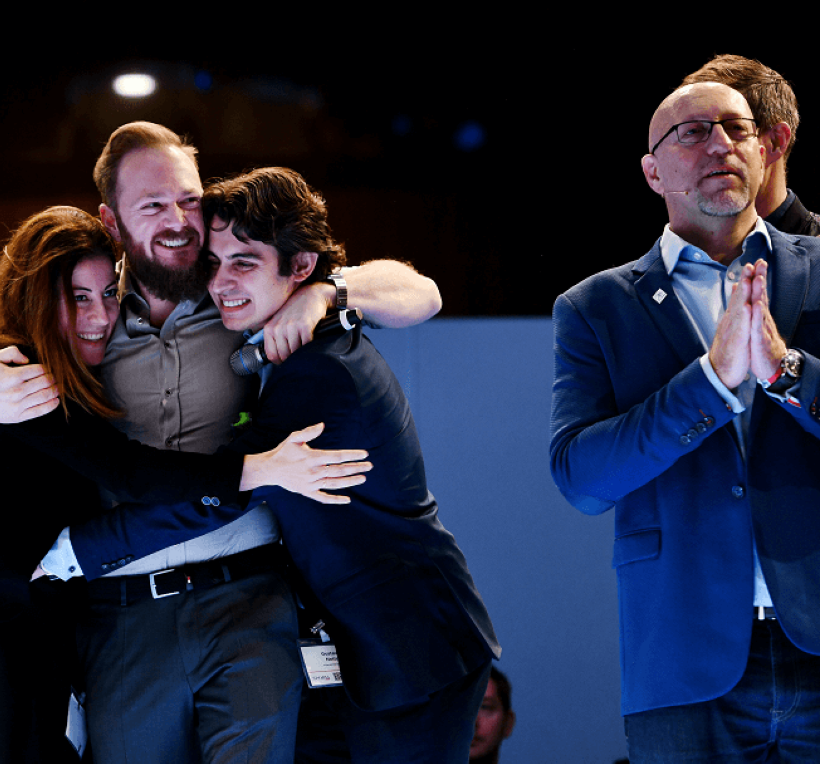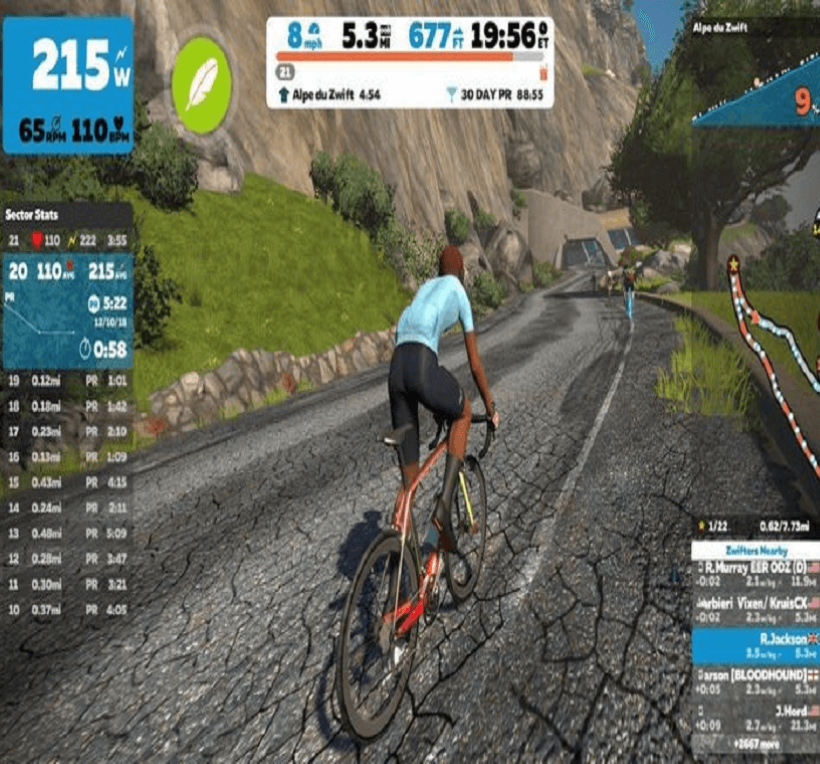

Can Web3 Generate Revenue for Sports Properties in 2024?
Read Time: 5 min.
Can Web3 Generate Revenue for Sports Properties in 2024?
As we embark on 2024, the sports industry is at a pivotal juncture, facing challenges that demand innovative solutions, as highlighted in one of my previous blogs. In my quest to explore the transformative potential of Web3, I had a conversation with one of our Web3 advisors, Ron Hasgall, about the transformative impact of Web3 technologies on the sports sector. We delved into why sports teams need to gear up for this revolutionary shift in the upcoming year.
Amir: Ron, let’s start with the big question. Is web3 still alive?
The answer is Yes, in fact, it’s just starting to unfold its potential. First, I want to emphasize that Web3 is not NFTs or Bitcoin, it represents a fundamental shift in how we interact with the digital world using Blockchain technology.
In the early 2000s, the digital landscape focused on transitioning to online social platforms. Now, with almost 60% of Gen Z owning a digital wallet and around 40% have used VR technology in some way, the digital age has evolved significantly as this early adopter generation is shaping the future with a strong preference for immersive and interactive experiences. It represents a natural evolution, shifting away from a centralized and censored internet controlled by corporations to a transparent and user-centric, accessible internet.
Amir: But after last year’s crash, it seems like nobody is really using it anymore.
Ron: The common mistake many people make, is associating Web3 solely with the Bitcoin and NFT trends. When the price of Bitcoin drops, they believe Web3 is over.
In reality, a significant number of sports teams continue to leverage Web3 technologies. Similarly, After the dot-com bubble burst, many thought online businesses were a lost cause, yet this period paved the way for giants like Google and Amazon.
The partnership of Manchester United with the blockchain company Tezos is a great example. As we speak, there are more than 100K members in the Manchester United Discord Group that generate revenues by owning, trading and buying digital collectibles and merchandise.
Additionally, the Payment giant Visa introduced last month, a Web3 loyalty service. The platform focuses on engaging customers beyond transactions by offering unique digital collectibles and rewards related to travel, sports, and entertainment. Starbucks is also innovating in customer engagement by integrating Web3 into their loyalty program, Starbucks Odyssey by starting by selling $200K of digital tokens.
Amir: It sounds like this goes beyond mere fandom; it’s a paradigm shift in how fans connect with their favorite teams. So how should sports team establish this community?
Ron: Imagine being part of the decision-making process for your team’s New Jersey design, having a say in the music played at the stadium, or even own a part of the Old Trafford.
Web3 fosters co-ownership, community, and shared experiences. It’s not just about watching the game, but actively participating in the team economy and ecosystem by taking part in token-gated communities.
Initially, it’s essential to motivate your fan base to join the community. While Web3 may seem complex, at its core, it revolves around creating digital wallets as digital identities.
HYPE has recently collaborated with a prominent football club and a leading blockchain company to boost fan engagement, using a token-gated community strategy. Inspired by user-friendly platforms such as NBA Top Shot, our approach enabled fans to collect digital tokens, each representing significant moments in the club’s history. These tokens were more than just collectibles; they provided tiered access to an exclusive online community, unlocking opportunities for unique content, direct interactions with players, and special merchandise.
Our strategy focused on making the digital experience as easy as setting up an email account and to leverage blockchain records to process user behavior data. The strategy not only deepened fan loyalty but also opened new avenues for targeted marketing in social media, leveraging the transformative potential of Web3 in sports engagement.
Amir: So how can you monetize this community?
Ron: The possibilities are endless as blockchain introduces new business models for monetizing both fans and teams. Digital assets can facilitate a secondary market for almost everything and even bridge the physical-digital gap. Starting with engaging experiences like exclusive content, virtual or in-person meetups with stars and decision-making processes, it extends to owning part of stadiums or IP including photos and logos.
Last year, we transformed a basketball team’s old memorabilia museum into a digital asset collectively owned by millions of fans through tokenization. All of this provides new revenue streams and funding both teams and athletes beyond matchdays. Many teams and platforms experiment with this concept like Panini, Golden State, Nike and Barcelona, NBA and NFL.
Amir: What about ticketing? Can blockchain revolutionize this area?
Ron: Yes, and I think it is the clearest use case for Web3 in Sport. Blockchain can automate ticket pricing and secure transactions, reducing fraud and increasing profitability by allowing teams to earn royalties from every secondary market transaction! Last month, the rock band Avenged Sevenfold and Ticketmaser distribute 10K token-gated tickets.
Amir: Nice! How can blockchain aid content distribution and OTT?
Ron: Blockchain’s universal accessibility ensures anyone with an internet connection can directly engage with its platforms. This technology enables personalized direct-to-consumer distribution models and peer-to-peer streaming, ensuring creators receive fair compensation for authenticated content.
The best part is that blockchain’s decentralized approach to content curation, empowers community members to actively influence content selection and creation. This community-driven model incentivizes users based on their viewing time, fostering a more varied and dynamic content library.
Amir: And eSports gaming? How does Web3 optimize these?
Ron: Platforms like Sorare, shows Web3’s potential in eSports and already have more than 4M users. Web3 games allow true ownership of in-game assets, by fostering transparent marketplaces and player-driven governance. The control of in-game assets encourages users to trade and engage with other users, enables them to transfer assets across various games. One identity to all of your sports games.
Amir: Lastly, How does Web3 save money and improves the operational efficiency?
Ron: Decentralized Finance is reshaping the financial landscape, allowing sports teams to streamline operations by reducing reliance on intermediaries in transactions and enabling immediate cross-border payments. Blockchain can also optimize various aspects, including supply chain management, betting, transfers, medical records, insurance, and even ESG traceability.
The bottom line
Unlocking the game-changing power of Web3 in fan engagement, ticketing, and monetization will reshape the landscape of sports and innovation in 2024. Embark on this journey with us as we invite sports teams to build Web3 strategies, gaining a competitive edge in the process. Join us in shaping the future of sports.
We are helping over 100 sports properties to increase revenue and reduce costs through innovation – Fill up your details below to learn more. Take 10 seconds to fill it




Comments